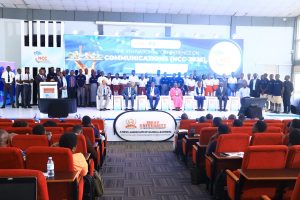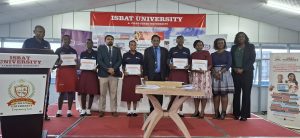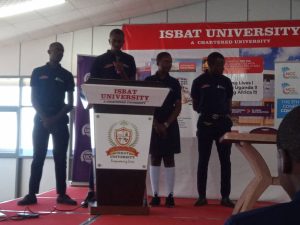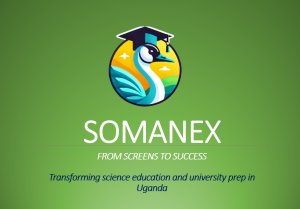Nyangahya Community Secondary School ICT Club Launch Masindi
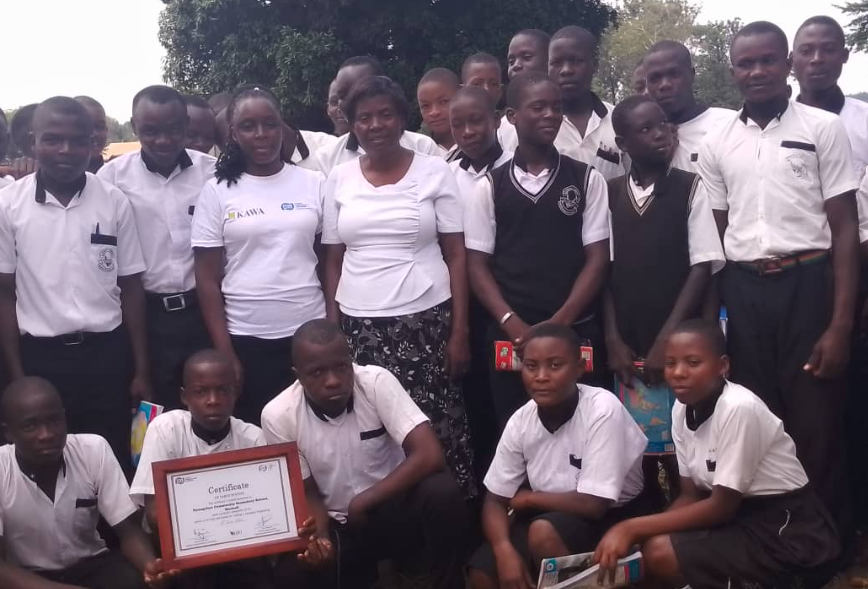
In a spirited push to seamlessly integrate digital skills into secondary school learning, Nyangahya Community Secondary School officially launched its ICT Club on June 23, 2025. This pivotal event marked a significant collaboration between the Uganda Communications Commission (UCC) and Kisubi Associated Writers’ Agency (KAWA), forming a vital part of a broader nationwide drive to prepare young Ugandans for an increasingly technology-driven future. Held within the school’s well-equipped ICT Laboratory in Masindi District, the launch garnered substantial interest from both enthusiastic students and dedicated teachers, reflecting a growing and essential awareness about the profound importance of ICT in the realms of education, effective communication, and innovative development.
The launch was expertly spearheaded by Ms. Christine Nambi, a distinguished KAWA National ICT Trainer, with invaluable coordination support provided by Mr. Kyamanya Peter, a highly dedicated teacher at Nyangahya Community Secondary School. Their overarching mission was clear: to equip students with foundational digital skills, cultivate a keen interest in coding and innovation, and meticulously guide the formation of a self-led ICT Club that aligns perfectly with Uganda’s progressive Competency-Based Curriculum (CBC). A total of 35 students, representing a broad spectrum from Senior One (S.1) to Senior Four (S.4), enthusiastically registered for the ICT Club. This wide representation across lower secondary levels vividly showcased the school’s inclusive approach and the palpable eagerness of its students to explore and master the dynamic world of technology.
The ICT Club launch was far from a mere ceremonial event; it featured highly engaging and meaningful activities specifically designed to spark curiosity and foster deep engagement among the learners. Key highlights of the day included an interactive orientation session that clearly outlined the objectives, manifold benefits, and operational structure of the newly formed ICT Club. There were vibrant discussions centered on crucial topics such as digital literacy, the principles of responsible technology use, and exciting career pathways in ICT. Furthermore, the session included compelling live demonstrations utilizing available ICT tools and software, effectively introducing students to essential hands-on digital practices. A vital component of the launch was the formation of leadership structures, including student-led committees, designed to empower learners to steer the club’s activities forward autonomously. Students participated with visible excitement and posed thoughtful, insightful questions, signaling their profound readiness to fully seize this remarkable new opportunity. As one student eloquently articulated, “This is the beginning of something new for us. Now we know ICT is not just about typing—it’s about creating, solving problems, and even starting apps or online projects that can serve our communities.”
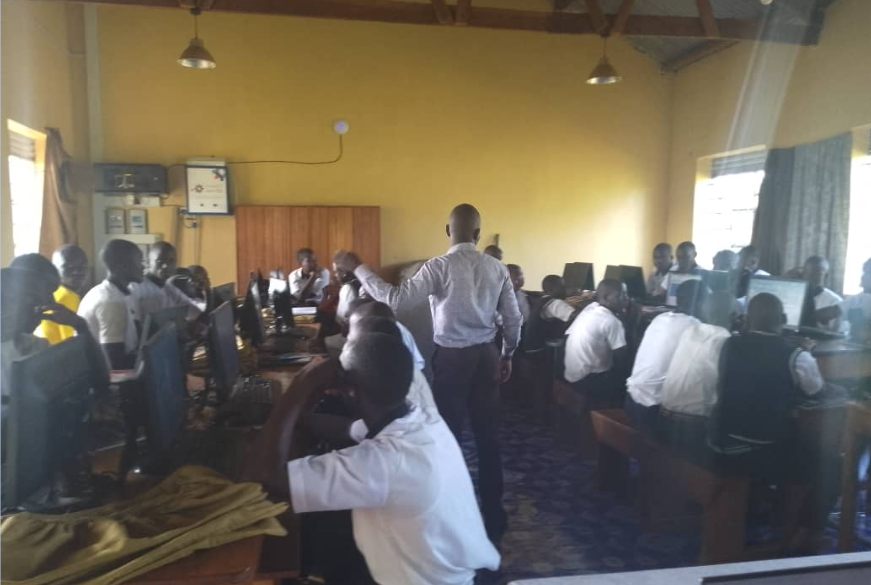
By the conclusion of the session, several key outcomes had been successfully achieved: the ICT Club was officially launched and its structure established, complete with a detailed student register and clearly defined leadership roles. Students had gained vital introductory digital skills, encompassing basic computer handling, proficient use of productivity tools, and initial exploration of various coding platforms. A concrete schedule for regular weekly ICT Club meetings was also set, with ambitious plans for future sessions covering digital storytelling, practical mobile app development using MIT App Inventor, and essential computer maintenance. The club is also poised to proudly represent the school in upcoming regional ICT competitions and innovation expos, with invaluable support from UCC and KAWA.
Despite the undeniable success of the launch event, some challenges were observed that require attention to maximize the club’s impact. The limited availability of ICT equipment notably slowed down the practical sessions, as not every student could interact directly with the computers simultaneously. Additionally, existing technical gaps in some machines pointed to a pressing need for consistent maintenance support. To enhance the club’s effectiveness and sustainability, the following recommendations were put forth: expanding the ICT lab infrastructure to include more computers, improving network connectivity, and acquiring multimedia tools; establishing regular mentorship sessions led by external ICT professionals or school alumni; and systematically monitoring club progress through structured student reports and rigorous project-based evaluations.
The launch of the ICT Club at Nyangahya Community Secondary School represents far more than just the inauguration of a new club—it signifies a profound commitment to cultivating a truly digitally empowered generation in Masindi District. The learners’ evident strong interest, synergized with the unwavering support from the school leadership, lays a robust foundation for long-term positive impact. Special appreciation is extended to UCC and KAWA for their visionary leadership in initiating and sustaining this vital national program, and to dedicated facilitators like Christine Nambi and the school’s Headteacher, Birungi Margret, for their tireless dedication to shaping Uganda’s burgeoning digital education landscape. Feedback from both students and teachers was overwhelmingly positive, with remarks such as “Good reception to technology and willingness to learn” and “The students are eager to go beyond using computers—they want to build with them.” This palpable positive energy promises a vibrant future for the ICT Club, one that holds the potential to produce the next generation of tech innovators and problem-solvers in Uganda. For more information or to offer support, please contact the Headteacher, Birungi Margret, at 0772949857.




